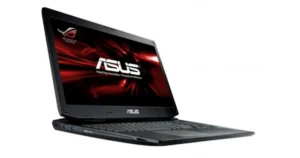How long can a hot water tank heat up? It’s crucial to understand what this entails. Essentially, this is the duration needed for a water heater to warm cold water to a desired temperature.
But why should you care about How Long It Takes for the Hot Water Tank to Heat Up? Imagine stepping into a shower, expecting warm comfort, only to be greeted by a chilly surprise.
The time it takes for a hot water tank to heat up can vary widely. Factors like the type of heater, capacity, the initial water temperature, and the desired temperature all play roles. Generally, a standard electric tank might take about an hour to heat.
General Timelines for Heating a Hot Water Tank
The duration for a hot water tank to reach the desired temperature can significantly vary. A general estimate suggests you can expect hot water within 30 to an hour and 20 minutes after filling the tank.
Gas water heaters typically take 30 to 40 minutes to heat the water thoroughly. This timeframe is essential to consider, especially when planning your daily routine or anticipating the need for hot water in your household.
Influence of Heater Type and Tank Size

The type of heater and the size of the tank are crucial factors affecting the heating time. On average, electric heaters take longer to heat up compared to gas heaters. The larger the tank and the higher the temperature setting, the longer the wait time for hot water.
This means that your experience can vary based on the specific characteristics of your heating system and your usage requirements, highlighting the need to understand your system’s specifics to manage hot water availability effectively.
Initial Heating Phase and Mathematical Considerations
The initial heating phase is critical, as cold water first enters the tank and begins to warm up. Typically, a gas tank heater will take about 30 to 40 minutes to start heating water when it enters the tank.
The specifics of why this process takes as long as it does can be understood better through a mathematical breakdown of the heating process, considering factors like the volume of water, the heater’s efficiency, and the desired temperature rise.
Navigating the Wait for Warmth – Understanding Your Hot Water Tank’s Heating Time
The countdown begins when you turn on a faucet for a hot shower. The anticipation of warm water cascading over you hinges on one critical factor: the time it takes for your hot water tank to heat up. This duration can either be a brief moment of waiting or a prolonged period of impatience.
And it’s influenced by many factors that most homeowners might not consider daily. As we dive into the intricacies of water heating times, we’ll unravel the mysteries behind the gallons and the BTUs, offering you numbers and an understanding of what they mean for your daily comfort and routine.
A Timely Heat: Standard Expectations for Water Heating

When it comes to heating water, there’s a standard expectation set by the type of heater you have. On average, gas heaters are known for their speed, typically taking about 30 to 40 minutes to heat the water in the tank thoroughly.
On the other hand, electric heaters require a longer duration, with a general wait time ranging from 30 minutes to an hour and 20 minutes. The capacity of your tank also plays a significant role.
For example, a 50-gallon tank might take anywhere from 145 to 150 minutes to heat up, while an 80-gallon tank can take around 120 to 130 minutes.
These times are not just numbers; they are the key to planning your day, understanding when to schedule your showers, and managing household tasks efficiently.
Heading 2: Factors Influencing Your Wait: Size, Type, and Temperature Settings
The journey to hot water is not a one-size-fits-all scenario. Several variables directly impact how long you’ll be waiting. Firstly, the size of your water heater is paramount. Larger tanks naturally take longer to heat up.
If you’re living in a more crowded household, opting for a 50 or 80-gallon heater might be more suitable to ensure a steady hot water supply, especially during peak times.
Secondly, the type of heater – gas, electric, oil, solar, or tankless – dictates the heating mechanics and, thus, the time frame. While gas heaters are quicker, electric ones offer different benefits despite their longer heating times. Lastly, the initial temperature of the water and the desired temperature setting can significantly alter the waiting period.
The Mechanics of Water Heating: How It Works
Every hot water tank operates on a fundamental principle: energy raises water temperature. In a typical gas heater, a burner heats the water from below. Heat is transferred to the water as the burner fires, gradually increasing its temperature until it reaches the set point.
In electric heaters, elements immersed in the water heat up due to electrical resistance and, in turn, warm the surrounding water. This process is influenced by the First-Hour Rating (FHR) and recovery rate, which indicate how much hot water the tank can provide in an hour and how quickly it can recover after depleting it.
Factors Affecting Heating Time: A Closer Look
Several factors are critical in determining how long your hot water tank takes to heat up. One of the primary considerations is the type of water heater. Gas heaters generally heat faster than electric ones due to direct flame heating, which transfers heat more efficiently.
The tank size is equally essential; larger tanks hold more water, thus requiring more time to heat. The initial temperature of the water entering the tank and the desired temperature also affect the heating time. Colder initial temperatures or higher desired temperatures will naturally extend the wait.
The power source of your heater is another variable. Electric, gas, oil, solar, and tankless heaters operate differently, with varying efficiencies and heating times. For instance, tankless or on-demand heaters don’t store hot water but heat it as it passes through the unit, providing hot water almost instantaneously but at a potentially limited flow rate.
Navigating the Hot Water Maze: Strategies and Solutions
Delving deeper into hot water heating is not just about understanding the wait; it’s about navigating it wisely. Homeowners are often at the mercy of their water heating systems.
Still, with the proper knowledge and strategies, you can take control, ensuring your system is efficient and has unique needs. This session explores various ways to optimize your water heater’s performance and manage the waiting time effectively.
Optimizing Heater Performance: Maintenance and Upgrades
Regular maintenance is the linchpin of efficient water heater operation. Sediment build-up, common in gas and electric heaters, can insulate water from the heat source, leading to longer heating times. Flushing the tank annually or installing a water softener in areas with hard water can mitigate this issue.
Additionally, insulating the tank and pipes helps retain heat, reducing the energy needed to maintain water temperature.
Upgrading your system can also make a significant difference. Modern water heaters are more efficient and have better insulation and more effective heating elements. Tankless water heaters are a compelling option for those seeking instant hot water and reduced energy consumption, though they require a higher initial investment.
Tailoring to Your Needs: Sizing and Timing
Choosing the right size for your water heater is crucial. A unit too small will run out of hot water quickly, while one too large may save energy. The ideal size depends on the Peak Hour Demand — the hot water your household uses during the busiest hour. Understanding this can guide you to a heater that aligns with your needs, balancing wait times with efficiency and cost.
Timing is another factor you can control. Installing timers on electric heaters or using smart home systems to activate your heater just before peak usage times can ensure hot water is ready when you need it without maintaining a high temperature all day, thus saving energy.
| Factor | Description | Consideration |
| Tank Capacity | The tank’s water volume is typically measured in gallons. | Larger households typically need more giant tanks, but consider your peak hour demand to avoid excess capacity. |
| Recovery Rate: | The rate at which the tank heats new water after hot water has been used. | A higher recovery rate means faster heating, crucial during peak usage times. |
| First-Hour Rating (FHR): | The heater can supply hot water per hour at peak usage, starting with a full tank. | Ensure the FHR meets or exceeds your highest hour of hot water usage to avoid shortages. |
| Energy Factor (EF): | A measure of the water heater’s efficiency. | Higher EF ratings indicate better energy efficiency, leading to cost savings over time. |
| Timing Controls | Options for managing when the heater operates, like timers or smart home systems. | Use controls to heat water just before high-use times, reducing the need for continuous heating and saving energy. |
Alternative Methods: Going Beyond Traditional Heating
Exploring alternative heating methods can offer environmental and economic benefits. Solar water heaters, for instance, use renewable energy to heat water, reducing reliance.
On traditional power sources and offering potential savings in the long run. While the initial setup cost can be higher and efficiency depends on sunlight availability, incentives, and long-term savings make them an option worth considering
. Summarizing the Journey to Hot Water Efficiency
Throughout our discussion, we’ve navigated the complexities of water heating, understanding the factors influencing how long your hot water tank takes to heat up and exploring strategies to enhance efficiency and reduce wait times. While the question How Long For a Hot Water Tank To Heat Up? seems simple, we’ve seen that.
The answer is multifaceted, influenced by heater type, size, maintenance, and personal usage patterns. As we conclude, let’s encapsulate the key points and offer some final tips to guide you in managing your hot water system effectively.
Key Takeaways: Understanding and Action
- Heater Type Matters: Gas heaters generally heat quicker than electric ones, while tankless systems provide hot water on demand but may have limited flow rates.
- Size and Capacity: Choose a water heater size that matches your household’s peak hour demand to balance efficiency and convenience.
- Maintenance is Crucial: Regularly flushing out sediment and insulating your tank and pipes can significantly improve heating efficiency.
- Consider Upgrades and Alternatives: Modern, more efficient solar water heaters can offer long-term savings and environmental benefits.
- Strategize Usage: Using timers or intelligent systems to control when your heater operates can save energy and ensure hot water is available when needed.
Final Tips and Tricks
- Conduct an Energy Audit: Understand your household’s energy usage and how your water heater fits into that. It might reveal unexpected opportunities for savings.
- Consult Professionals: When in doubt, seek advice from a certified plumber or energy advisor, especially when considering a new system or significant changes.
- Stay Informed: Keep up-to-date with the latest water heating technology and energy efficiency standards, which can evolve rapidly.
Frequently Asked Questions
How can I quickly tell if my water heater is inefficient?
A: Look for signs like longer heating times, higher energy bills, or inconsistent water temperatures. These can indicate sediment build-up, insulation issues, or general inefficiency.
Are there any quick fixes to reduce heating time?
While not a ‘fix,’ raising the thermostat setting can heat water faster but will consume more energy. Consider insulating your pipes or using a water heater blanket for a more sustainable approach.
Is it worth switching to a tankless water heater?
A: Tankless heaters are ideal for providing hot water on demand and are generally more energy-efficient. However, the initial cost is higher, and they’re best suited for homes where the need for hot water isn’t simultaneous in multiple outlets.
Conclusion
Understanding how long a hot water tank can heat up helps you manage your daily routine better. Whether you have a gas or electric heater, the time can vary, but knowing the specifics means no more cold surprises. Regular maintenance and choosing the right size tank make a big difference, ensuring you have hot water when needed.
Every home’s need for hot water is unique, just like the factors that affect heating time. By staying informed about your system and making wise choices, you can enjoy a steady flow of hot water. Remember, a little knowledge and proper care can go a long way in providing the comfort and convenience of hot water in your home.









